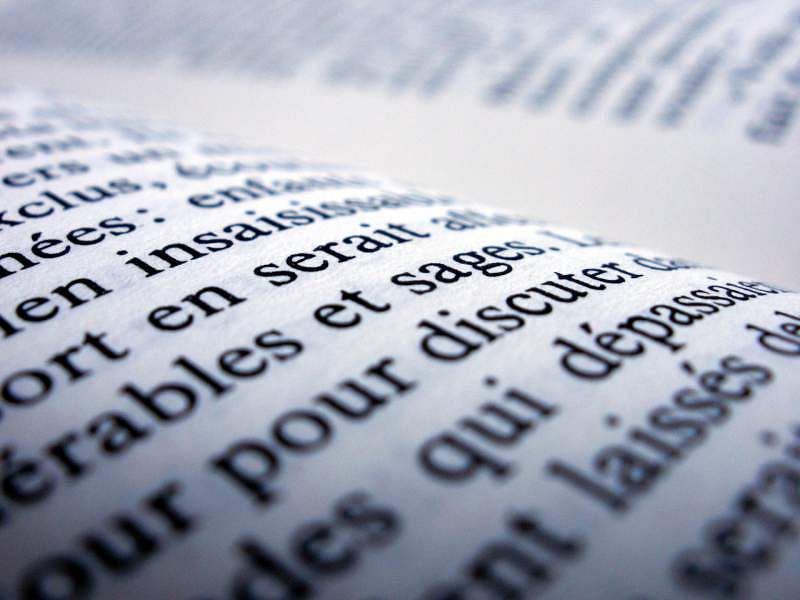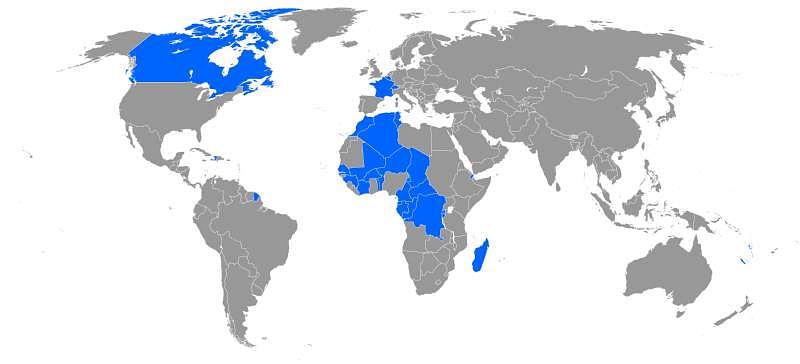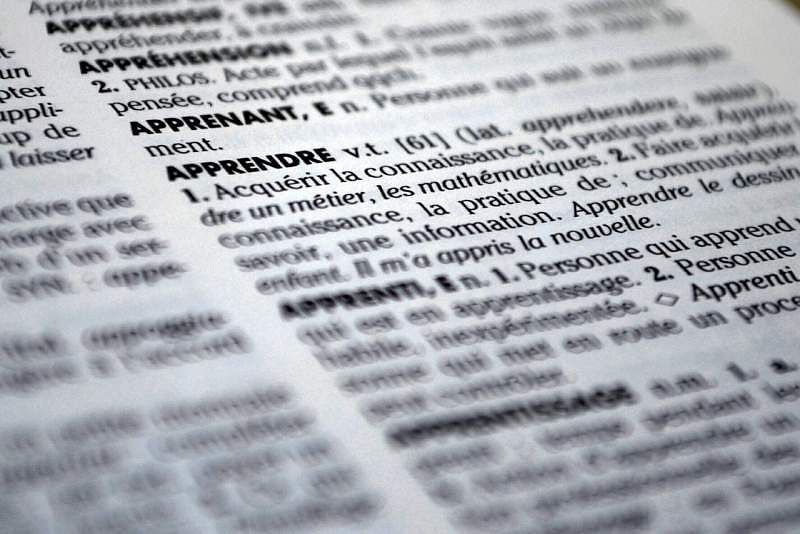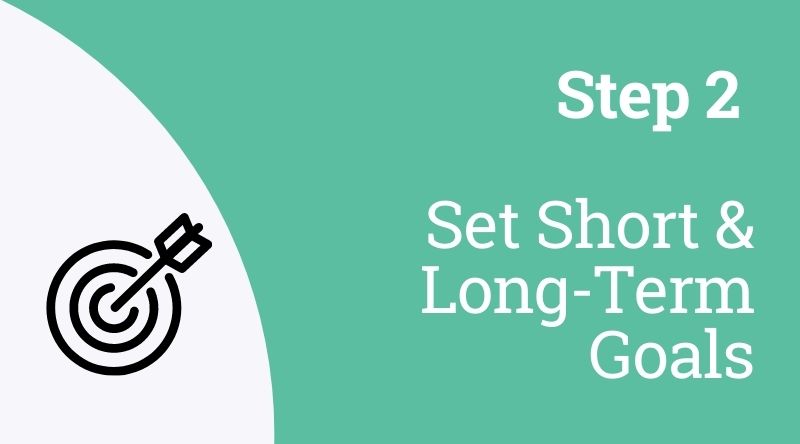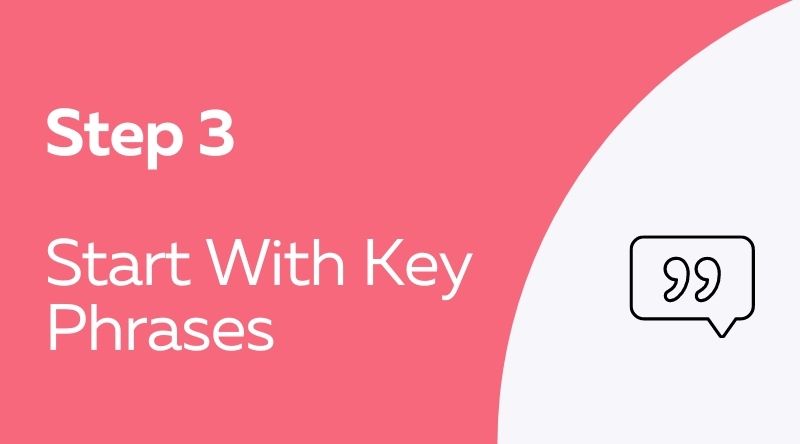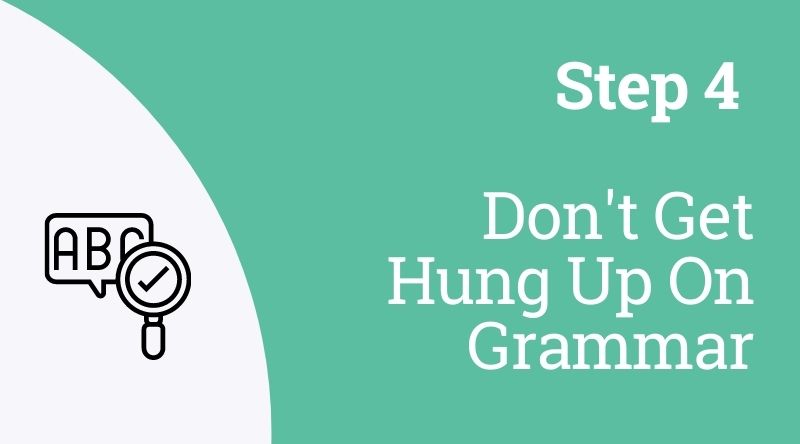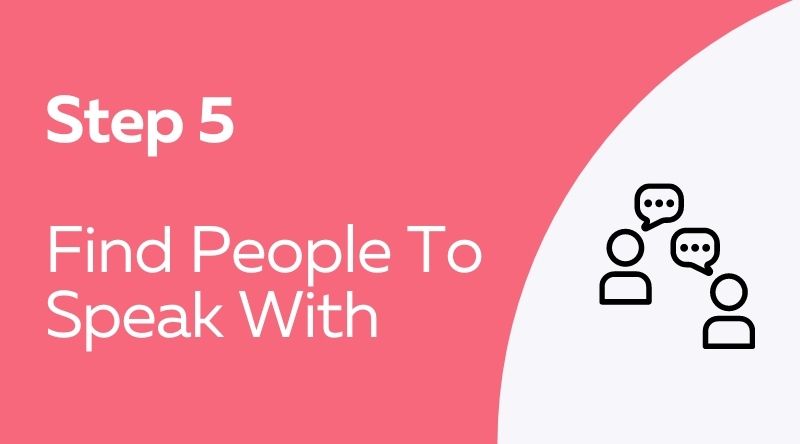Starting out learning French can seem frightening at first…
Words on the page can look so different from how they're spoken and pronouncing these strange words can feel like an impossible task.
But although it may not seem so at first..
French is not a particularly difficult language for English speakers to learn!
French has a lot in common with English, which can help you get started.
Pro Tip
If you're looking for the fastest and most enjoyable way to learn French, then I recommend the French Uncovered programme.
With French Uncovered you'll use my unique StoryLearning® method to learn French through story… not rules.
It's as fun as it is effective.
If you're ready to get started, click here for a 7-day FREE trial.
But otherwise, let's continue…
In this post, I’m going to reveal everything I've discovered about how to learn French as a beginner, so you can benefit from my experience and start your journey to learn French off on the right foot.
This article will give you all the information you need to know about this rich and beautiful language as well as how to start learning it.
If you’ve ever asked yourself any of the following questions, then this article is for you. If you want to skip ahead, just click the section that interests you.
Table of Contents
I’ll start by telling you about the French language and its culture. Next, I’ll answer common questions beginners have about learning French. Then, I’ll finish with my recommended action steps for those who want to learn to speak French, followed by some great resources.
Because this post covers everything you need to know as a beginner, it's quite long! I’ve also prepared a special PDF version of the post so you can download it any read it anywhere, anytime.
It’s completely free to download; simply click here to grab your copy.
Why Should I Learn French?
There are lots of different reasons you might want to learn French.
- You live in France or have family or friends who live there
- You’re planning to visit France or another French-speaking country
- Your significant other is a French-speaker
- You’re intrigued by the French language
Whatever your reason, you should be excited!
Why?
French is one of the most widely spoken languages in the world and one of the most rewarding to learn.
By learning even the basics of French, you'll open a world of opportunities for yourself
Maybe you already have a clear idea of what motivates you to learn French, but here are a few more reasons learning this language could be a life changing experience:
1. Have More Authentic Experiences When Visiting French-Speaking Countries
Although people in common tourist areas in France, as well as many of the younger generation, have at least some level of English, many of the older generation don’t speak any English at all.
When buying tickets, taking a train or eating in a restaurant in areas less frequented by foreign visitors, you can’t rely on the locals being able to communicate in English.
2. Learning French Will Allow You To Fully Enjoy French Culture
As you learn the language, you inevitably learn about the culture of the country. France is a country with a rich and proud cultural heritage.
An understanding of the language will open the door to a deeper understanding of French art, literature, music, film and even cuisine.
3. French Is Not Nearly As Hard As You Might Think
French is a great foreign language to learn because you can learn a lot quite quickly. This means you get to the fun stuff like having conversations or engaging with French culture faster.
4. You Can Make Real Connections With French People
If you are able to speak with French speakers in their own language, you'll be able to connect with them more profoundly, make new friends and learn what their lives are like.
People will appreciate that you're making an effort to speak their language and you'll earn their respect.
Nelson Mandela once said:
If you talk to a man in a language he understands, that goes to his head. If you talk to him in his language, that goes to his heart.
5. Once You Learn French, It Will Be Much Easier To Learn Other Languages Too
French was the first foreign language I learned and I've since gone on to learn 7 more. Learning French will give you the experience you need to go on and learn other languages more easily, especially related languages like Spanish and Italian.
What Are The Key Features Of French?
In this section, we'll look at the key linguistic features of French. You're going to learn about:
- Where French Is Spoken & Why It's An Important Global Language
- Word Gender
- Verb Conjugations
- Pronunciation
- Spelling
For more on how French became the language we know and love today, check out this video about the history of the French language:
1. Where French Is Spoken & Why It's An Important Global Language
French is a Romance language which means it is descended from Latin and is closely related to languages like Spanish, Italian and Portuguese.
Here are a few of the key facts worth knowing about French:
- French is the mother tongue of up to 110 million people. A further 190 million speak French as a second language and it is predicted to have as many as 500 million speakers by 2025. Check out my post on French-speaking countries.
- French is a truly global language. Modern French is most closely related to the dialects that were spoken in the north of France but, due to France’s influence and reach during the colonial period, it has become a global language.
- French is an official language in 29 countries worldwide as well as of many international organisations, and is spoken not only in France but also Belgium, Switzerland, Canada, USA and many former French colonies in Africa.

- French used to be the global lingua franca (the language of business and international relations) from the seventeenth century until the end of the Second World War when it was overtaken by English.
- If you speak French, it's easy to learn other Romance Languages. Speakers of Romance languages usually find it very easy to learn others in the group due to similarities in grammar, vocabulary and other areas. Once you have learnt one language from the group, learning one or more of the others becomes much easier.
2. French Word Gender
For anyone who learnt a little French at school, one of the first thing that probably comes to mind about the language is the concept of gender.
In French, as with other related languages, all nouns have a gender, either masculine of feminine.
When talking about people, this is easy. The grammatical gender is the same as the gender of the person:
- a boy is un garçon (masculine)
- a girl is une fille (feminine).
However, other objects do not follow any logical pattern. For example, buses and wine are masculine:
- un bus
- un vin
While cars and beer are feminine:
- une voiture
- une bière
Sometimes the gender of a noun can be counterintuitive – for example, “masculinity” (la masculinité) and “virility” (la virilité) are both feminine nouns in French!
In most cases, the gender just needs to be remembered without asking too many questions.
But don't worry!
There are lots of little mental tricks you can use to help remember the genders of different words. And even if you do mix up the genders now and again, people will still be able to understand you.
3. French Verb Conjugation
Another of the main differences between French and English are the verbs.
In English, verbs don’t change their form much. In the present tense, English simply adds a ‘s’ to the ‘he/she’ form, giving:
- I swim
- you swim
- he/she/it swims
- we swim
- you (plural) swim
- they swim
However, in French, there are other changes, depending on who carries out the action. This process is called conjugation.
Verbs are conjugated differently depending on who is doing an action and when the action is being done. For example, the French verb nager (to swim) would be conjugated as follows in the present tense:
- je nage
- tu nages
- il/elle/on nage
- nous nageons
- vous nagez
- ils nagent
French verb tenses differ somewhat from English, too, although this should pose no particular problem for learners of French.
When talking about the past, French essentially distinguishes between:
- An event that occurred just once at a single point in time
- Something that was true for an extended period of time or that happened regularly.
English has an array of ways to express this but in French, it’s much simpler. It’s different, but you'll become accustomed to French tenses very quickly.
In fact, it’s probably much easier for English speakers to master French tenses than it is for French speakers to get to grips with the complicated tense system in English.
The Subjunctive In French
Another point to note is that, in French, use of the subjunctive is common.
In English, this is a usage that has almost died out and is only present in expressions like ‘God Save the Queen’ (not ‘God saves the Queen’) or ‘it is important that you be on time’ (not ‘are on time’).
It is interesting to note that in English, a phrase like ‘it is important that you arrive on time’ is technically a subjunctive but we are never aware of it since the form of the verb doesn’t change.
In French, subjunctive forms are often different from the normal (‘indicative’) forms.
However, there is no major difficulty with this as differences are quite easy to remember. You'll quickly become accustomed to this usage.
Take heart from that fact that the French subjunctive is much less complicated than in Italian or Spanish, where it is used much more extensively.
4. French Pronunciation
You might have reservations about French pronunciation, although, again, there is nothing to be afraid of.
There are only a handful of sounds that cause trouble for English speakers and you'll find that, with some practice, they are not as difficult to produce as they may seem at first.
Perhaps the most notoriously difficult sound for English speakers is the French ‘r’ as there is nothing similar in English phonology.
It is pronounced in the back of the throat with the throat partially closed and is similar to the sound of clearing one’s throat, only more delicate.
This sound can seem particularly intimidating for new learners but as we'll see later, it's not nearly as hard as you might imagine.
Another pitfall for English speakers is that French distinguishes between ‘u’ and ‘ou’ (as in tu and vous) whereas English only has a single ‘u' sound (the sound in “you”), which is different from both of the French sounds.
This can lead to some rather amusing situations! You may think you are saying “neck” (cou) but if you get pronunciation wrong you may actually end up saying cul – meaning “arse” – instead!
That could end up being rather embarrassing!
Thankfully, most of the other vowels and consonants of French are much easier for English speakers to produce.
5. Spelling In French
One other area to highlight is French spelling, which may seem rather erratic at first sight.
Like English, spoken French has gone through many changes since it was first written down, and these changes have not been matched by changes in the written language. The result is that French words now contain lots of letters that are no longer pronounced.
An example of this would be the verb nager. il nage and ils nagent are written quite differently but pronounced exactly the same:
- il nage (he/she swims)
- ils nagent (they swim)
Coupled with this is the array of accents and other symbols above and below French letters which, seen together, make written French look quite intimidating.
Don't worry too much about this though. There is nothing terribly difficult beyond a few unusual spellings to remember.
And you can always comfort yourself with the thought that English spelling is much worse!
Want to download a PDF of this article to read later? Click here to get your FREE copy.
An Introduction To French Culture: What You Need to Know
Even for those unfamiliar with France, some stereotypes of the country likely come to mind.
France’s neighbours from across the channel like to snigger at the caricature of a Frenchman tottering along on a bicycle in a striped t-shirt and beret, sporting a pendulous moustache and with a baguette stuffed under his arm.
Others give credence to the idea that French people are all romantic and that French is the language of love.
Some associate France with the fancy food and expensive wine while others imagine a land where nothing ever happens because everyone is always on strike. But what is the truth?
France: A Tourism Hotspot
France is the world’s most popular destination for international tourists, regularly beating the US and China into second and third places respectively.
Most visitors head straight for Paris where they can take a stroll down the Champs Élysées, climb the steps to Sacré Cœur in Montmartre and snap a photo of the Moulin Rouge before making their way to climb France’s most famous monument, the Eiffel Tower.

And of course, no visit to Paris would be complete without a trip along the River Seine on a Bateau Mouche or several hours immersed in history and culture in one of the world’s great museums, the Louvre.
The second most popular destination in the country is the famous French Riviera – or Côte d’Azur – France’s Mediterranean coastline in the south.
For many, the biggest draw is the Loire Valley, where visitors can admire some of the most elegant architecture in Europe – the French châteaux. For others, the Bordeaux region and the chance to sample the world-famous wines made there has more appeal.
If you're more adventurous or active in nature, in the area bordering Italy and Switzerland rise the Alps which reach their zenith at Mont Blanc, 4808m, the highest peak in Western Europe.
In summer, these mountains offer spectacular opportunities for randonnée – hiking – and in winter, provide some of Europe’s best locations for winter sports.

France: A Land Rich In History
Throughout the country, there are reminders of France’s long and varied history.
The Lascaux caves in southwestern France, no longer open to the public, contain cave art dating to around 17,000 years, and there are also examples of Roman architecture are scattered throughout the country, – reminders of the more recent but still ancient past.
These are some of the things that attract visitors to France and which combine to form the impression outsiders may have, but how do the French view themselves?
It would be fair to say that the French are fiercely proud – and justifiably so – of their history and cultural heritage. The French Revolution led to the Declaration of the Rights of Man and of the Citizen and was the origin of the famous French motto liberté, égalité, fraternité’(liberty, equality, fraternity).
Every French schoolchild knows of a succession of heroes and defenders of this freedom, from the fictional Asterix who was a constant thorn in the side of the occupying Romans, to Jeanne d’Arc (Joan of Arc), a symbol of the fight to liberate France from the English during the Hundred Years War.
More recently, there was Charles de Gaulle, the leader of Free France during the occupation of the Second World War.
Established in 1635, the Academie Française has been the official authority on and protector of the French language ever since and the French are as proud of their language as they are of their history.
Since the Renaissance – a word which comes from French – France has produced writers and thinkers from Voltaire to Molière to Camus, and indeed, the French themselves often refer to their language as ‘the language of Molière’.
Let's Not Forget French Film!
The French have always excelled in the arts and this has continued into the modern era with important contributions to music and film.

Every year, the Cannes Film Festival is one of the most anticipated events on the film industry calendar and showcases some of the world's most creative and progressive filmmaking.
The Palme d’Or, the festival’s most prestigious award, is awarded each year to the most outstanding film at the festival. It's considered one of the most coveted awards in the film industry
La Crème De La Crème: French Cuisine
It would also be impossible to talk about France without mentioning French cuisine (again, the English word “cuisine” comes from French). France, arguably more than any other country has elevated cooking to an art form.
Inseparable from this and another source of French pride is the fact that France produces some of the world’s best wines and champagnes.

The key to exploring this culture and that of other French-speaking countries is the French language. Of course, French culture can be appreciated without speaking the language, but once you understand French you'll find that you're able to explore and appreciate it all much more profoundly.
Is French Hard To Learn?
Somewhere along the line, French seems to have picked up something of a reputation for being a difficult language to learn.
But in fact, once you overcome some of the initial unfamiliarity and begin to get a feel for the language, it is actually one of the easiest languages for English speakers to learn.
In this section, we'll examine some of the main reasons French is not especially difficult for native English speakers to learn:
1. French And English Have A Lot Of Words In Common
There is one single fact about French that makes it an easy language for speakers of English to pick up and that is that the two languages share a huge amount of vocabulary.
Since the Norman conquest of Britain in 1066, English has been heavily influenced by French, so an estimated one-third of English words now come from French.
This simplifies the task of acquiring large amounts of vocabulary as you'll quickly find that you already know many French words from English.
Learners who are just starting out will find that many words in English are exactly the same as in French while others change only slightly.
Even better, many of these words are common, every-day words that you will use often. Here are a few examples:
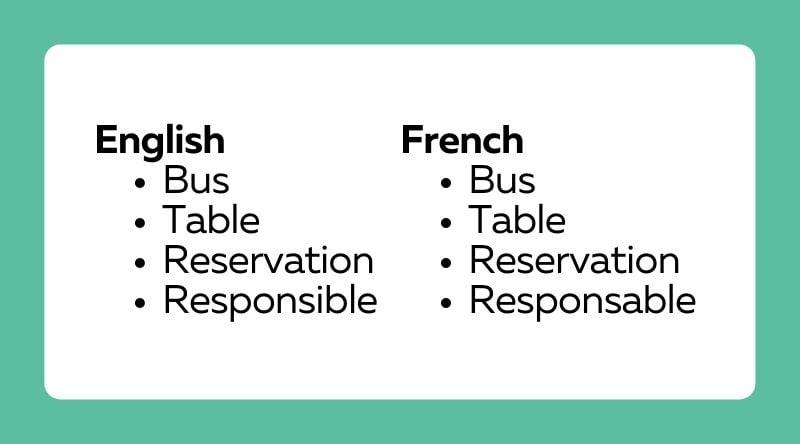
More good news is that in recent years, the direction of borrowing has reversed and French has started absorbing English words in large numbers, much to the dismay of French purists and the Academie Française.
This means that many modern words are also the same in French as in English – although pronounced with a French accent. Here are some examples:
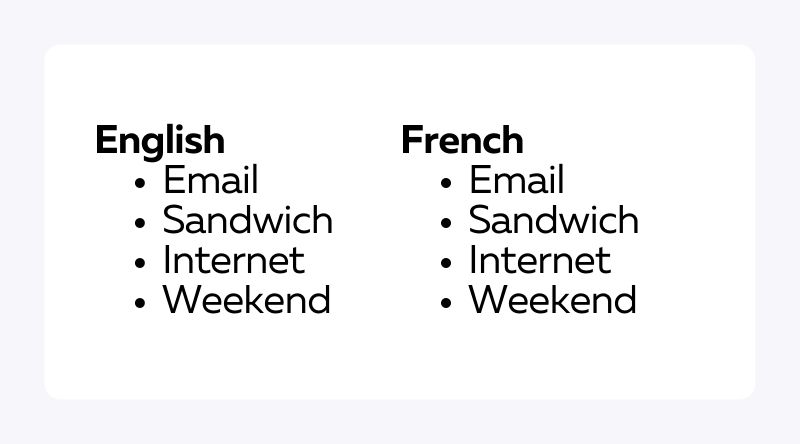
Finally, there are some words which come from French and which have taken on a slightly new meaning in English.
One such example is the word chef.
In French, chef actually means “boss” and the person in charge of a kitchen is the chef de cuisine.
However, English-speaking kitchens and restaurants have retained the use of some French terms for positions such as sous-chef, sommelier and so on.
Of course, in English, the term “chef” has now come to mean “boss of the kitchen” instead of simply “boss”.
This closeness of French and English has created a problem, however, in that French and English share an unusually high number of faux amis, or false friends too. These are words that look the same but have a different meaning.
For example, the word actuellement in French doesn’t mean “actually” but in fact means “currently” or “at the moment”.
However, this presents no great problem. As a French learner, you'll soon come to spot these hidden traps.
2. Word Genders Follow Simple Rules (Most Of The Time!)
There are a few other areas of French which have a reputation of being difficult but even these are not so difficult when you really look at them.
Take word gender, for example.
While in general, there is no way of telling from a noun whether it is masculine or feminine, there are some tips that will help you remember, or at least have an educated guess at a word's gender.
- Almost all nouns ending in -aison, -sion, -tion or -xion are feminine
- Most nouns ending in a consonant are masculine.
There are exceptions, of course – but these kinds of tips can help you get started without being overwhelmed.
And even if you get it wrong, don't worry! It’s not the end of the world and people will still understand you!
3. French Verb Conjugations Use Easy-to-Learn Patterns
French verbs are another tricky feature that you'll have to grasp.
But again, they needn’t be a cause for undue concern. French verbs ‘inflect’; that is, they change form depending on who is doing the action:

This can be confusing at first for English speakers. After all, this is something that doesn't really exist in English.
However, learning conjugations is not particularly difficult. Most verbs follow the same patterns so you'll quickly get used to how French verbs work.
You'll also notice in the example above that even though the spelling changes, the pronunciation of 4 of the 6 forms is exactly the same! This makes things a lot easier than they first might seem, at least when speaking.
There are also different verb tenses to learn – but, the basic French tenses, are not particularly difficult to understand even if they are different from English
It's simply a case of paying close attention when listening and reading. You'll pick up a lot from context and from seeing the same structures repeatedly.
More good news is that some of the more ‘complicated’ tenses follow the same logic as English. So once you understand how to form the basic tenses, the more ‘advanced’ ones become very simple to pick up.
And then there is French pronunciation…
An Introduction To French Pronunciation
Before talking specifically about French pronunciation, let’s just remind ourselves of a very important point regarding the pronunciation of foreign languages in general.
Unless you learn your second language from a very young age, it is almost impossible to ever achieve native-level pronunciation.
Even somebody who marries a person from a foreign country then moves to that country and lives there for twenty years speaking that language every day will still speak with a hint of an accent.
What does this mean for you as a learner?
It means that it's ok not to have perfect pronunciation in French.
Speaking with a perfect accent is not a realistic objective and however long you learn, the moment you open your mouth, people will probably know where you are from.
The point is to pronounce the words as best you can and well enough that people can easily understand what you're trying to say.
Many students focus too much energy on perfecting their French accent, which can actually slow your progress.
It is important to remember that perfect pronunciation is never your goal.
Your goal should be clear and intelligible pronunciation, and if you can accept this, then you have taken one more step toward acquiring a new language.
In French, there are really only two sounds that English-speaking learners need to master from the beginning and after that, the rest is just fine tuning.
The French ‘R’
The French ‘r' sound has a fiendish reputation among English-speaking learners of French and, having no close equivalent in English, it is a sound that most people will need to practise.
However, the first thing to remember is that there is no need to be intimidated by this sound – most people are able to produce a passable imitation of the French ‘r' from the beginning and French speakers will be able to understand you.
Keep at it and you'll only improve with time. Learning new sounds is like going to the gym, it's difficult at first and you won't see immediate results on Day 1. But if you continue to practice over time to it becomes easier.
The French ‘r' actually has more than one sound, depending on where it's located in a word.
These sounds are nothing like an English ‘r' but neither are they like the Spanish one (which is almost a purring noise made by vibrating the tongue against the roof of the mouth).
The French ‘R's comes from deeper in the throat and are a little similar to the sound made when clearing one's throat – except softer and less harsh.
The first sound is normally used are the beginning of a word, for example in rester, meaning “to stay”.
The second sound normally appears when ‘r' follows another consonant in French, for example in the word proche, meaning “nearby”.
The main difference between the two sounds is that the first one is voiced while the second one is voiceless.
- A voiced sound is one in which the vocal cords vibrate
- A voiceless sound is one in which they do not.
This sounds very complicated but it's actually completely normal! We have the same thing in English with the letters ‘s' and ‘z'. One is voiced and the other is voiceless. But because English uses two different letters to represent the sounds, we don't realise!
The difference in French is that both sounds get represented by a single letter.
Here's what you need to do to produce the French ‘R' sounds correctly:
- Try to partially close the back of your throat, keeping your tongue in the middle and not touching the roof or your mouth
- Blow air out from deep in your throat (again, almost as if you were trying to clear your throat).
The best way to practice these sounds is with a recording or with a native French speaker, so you can listen to the sound you should be trying to reproduce. Practicing often and don't worry if you can't get these sounds right at first. The more you speak French, the better you'll get at these pronunciations.
The French ‘U’ (As In Tu) vs. ‘Ou' (As In Vous)
Another challenging aspect of French pronunciation for English speakers to get to grips with is the ‘u’ sound in tu as opposed to ‘ou’ in vous.
- The ‘u' in tu
- The ‘ou' in vous
These sounds present far less of a challenge than the ‘r’ sound and perhaps the greatest problem comes from the fact the many students don’t realise these vowels are pronounced differently at all!
Since English has no corresponding sound, as an English speaker it's natural to try to pronounce both tu and vous to rhyme with the English word “you”.
The English “you” is closer to the French vous although not exactly the same, it's altogether different from tu.
For most people, once this difference has been pointed out, the problem quickly evaporates with a little practice.
A simple way to get a close approximation of this sound is to start by making the ‘ou’ sound in the English word “you”.
- Hold your lips in the same shape as for the English word “you”
- Then push your tongue further forward so that it is almost between your lips
- Try to make the ‘ou’ sound.
- You will find that it is impossible but that the sound you are now making is, in fact, a French ‘u’!
These two sounds are the ones that are likely to leave French people scratching their heads (or perhaps giggling depending on what you have just said). Just practise a few words while listening to a recording, you'll soon be able to master the differences.
One final tip is not to fall into the trap of letting written French spoil your pronunciation.
Don’t pronounce the words the way they're spelt. Listen carefully to the way native speakers pronounce words and try to replicate them.
Listen, too, to the rhythm and the melody of the language and try to copy it. Just like any other language, French has its own rhythm and intonation. You'll pick up on this over time and the more you do so the better and more natural your French will sound.
7 Pitfalls To Watch Out For As A Beginner French Learner

You’ve probably heard that learning your first foreign language is always the hardest and that after that, each additional language becomes a little easier.
This is mainly because experienced language learners know how to learn a language.
Through trial and error when learning their first foreign language, they learn what works and, importantly, they learn what doesn’t work.
Here are a few tips to help you avoid some of the mistakes many new language learners make.
1. Don’t Learn Lists Of Random French Vocabulary
Anyone who learned a language at school will probably remember learning lists of words for vocab tests.
While learning a language absolutely involves acquiring large amounts of new words, learning random lists of vocab is probably the single most inefficient way of doing it.
When you learn a language, you should focus on learning the words you're actually likely to need. Just because your textbook has a list of the words for different body parts or types of clothing doesn't necessarily mean they're important.
Focus on learning words you're likely to use in conversation rather than getting hung up on memorising the French for things like “eyebrows” or “shoelace”.
You learn new words by being exposed to them in a variety of different contexts. Focus on noting down the key words that are most important to you and practice them in context as much as possible.
2. Don’t Translate
Translation is a specific skill but in language learning, it’s a dirty word.
If you always think in English and then translate into French, you won’t be able to speak quickly or fluently and your French sentences will come out as pure franglais – they will have French words but with English structures and won’t sound natural.
Likewise. if you always translate from French to English, you will focus on individual words and your brain won’t be able to keep up, meaning you will find it very difficult to understand what people are saying.
When you learn new words, try to learn them alone in French without ‘attaching’ them to an English meaning. Many words can’t be translated precisely anyway – and later you will find there are even French words you don’t know how to say in English!
3. Don’t Look Every New Word Up In The Dictionary
You may not realise it but there are many words in English you don’t know (it’s impossible to know them all)!
For example, when reading a book or a newspaper in English you'll come across many words that you might not be able to define exactly, but you are still able to understand their overall meaning from the context in which they appear.
This should be the same in a second language. You don’t need to know every word in a sentence to understand the meaning.
Don’t go to the translator or dictionary every time you hear a new word or you will never get anywhere.
Try to understand the meaning of the word from its context.
Learning words in this way helps to fix them in your long-term memory too because you develop a better understanding of the context in which they're used.
4. Don’t Be Afraid To Make Mistakes
Making mistakes is a very important part of the learning process and every time you make a mistake, you improve. But many students struggle to just “let go” in French and start speaking. (You can blame the “Fear Villain” for that!)
But if you wait until you can speak a language perfectly before you start speaking… you'll never start speaking. It's a classic catch-22.
So what can you do about it.
Learn to speak where you feel comfortable first, THEN go out into the world and unleash your potential.
Start by speaking with friends or with a tutor in a relaxed environment before you throw yourself into conversations with native French speakers you meet on the street.
That way, you'll build confidence and hone your skills, so when the time comes to speak French in the real-world, you feel confident and prepared to do so!
A great place to start speaking is LanguaTalk. This site allows you to find French tutors from all over the world and book lessons or speaking sessions with them.
5. Don’t Write Everything Down
You don’t need to write everything down. Maybe you did that at school – but if you’re reading this, it probably didn’t work.
Even if you write down every new word or grammar rule, there’s a good chance you won’t go back and read them again anyway.
Focus on writing down only the most important words you come across and take the time to review them regularly. It's far more useful to have a small list of really important words you review regularly than a long list you never look at!
6. Don’t Try To Remember Everything
In language learning, you will forget a lot more than you learn but you will eventually remember everything through constant practice.
Forgetting is simply part of the learning process so don't get too down or frustrated when things don't stick right away.
Don’t try to remember everything first time, it will only slow you down and make it more difficult to progress. Accept that you are allowed to forget things and your learning will be much faster.
7. Don’t Focus Too Much On French Pronunciation
Pronunciation is important, of course, but perfect pronunciation is practically impossible.
Aim for clear and intelligible pronunciation and leave it at that. If the person you are speaking to understands you with no problems, that’s good enough.
Over time, your pronunciation will continue to improve but this takes months and months of using the language regularly.
6 Steps To Learn To Speak French For Beginners
So now we’ve looked at what not to do, let’s look what you should be doing to learn to speak French as a beginner.
If you’re wondering how to learn beginner’s French from scratch, here’s exactly what I would recommend you do:
1. Enrol In French Uncovered To Learn The Fundamentals (And More!)
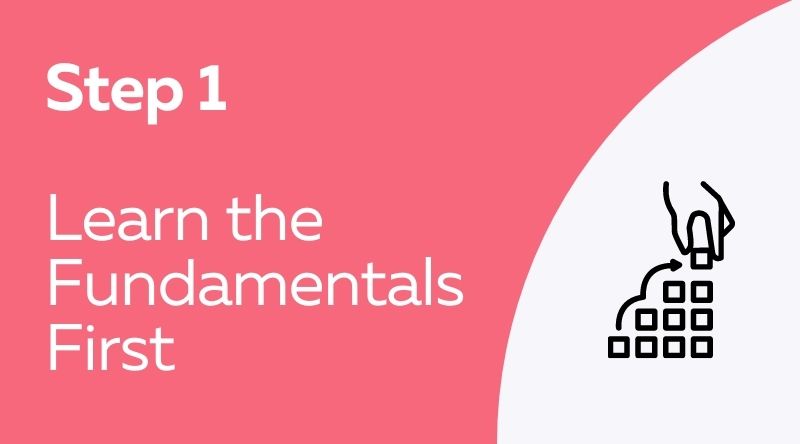
One important thing about learning a language is that it must come from the learner, not the teacher. The teacher’s job is to guide you – but you must do the learning.
This means you will need the necessary tools to learn, and a good beginner course is indispensable.
You’re going to need lots of input via reading and listening in order to move beyond beginners French and grow your vocabulary. That's why I've created my online French course – French Uncovered – to teach you through the power of story.
You'll listen to and read your first book in French, and our expert French teacher Diane, will help uncover the grammar and vocabulary in the story, chapter by chapter.
By the time you've finished, you'll be a confident and well-rounded French speaker, ready to use your French in the real world!
Get started now with a FREE 7-day trial
2. Set Short And Long-Term Goals
Right from the beginning, you should concentrate on mastering the basics of French pronunciation, as well as the basic words and phrases you need to get by in basic conversations. These are excellent short-term goals to get you started.
As you quickly progress from absolute zero to being able to manage in an ever-increasing number of situations, you will feel a great sense of progress and achievement that will encourage you to keep going.
When learning a language, it is extremely important not to become disheartened or you'll want to give up. Be aware of the progress you are making and feel good about it! Fluency is a long-term goal but you will get there in the end.
3. Memorise Key Phrases
Learning lists of random words will get you nowhere.
What you do need to do is identify the common French phrases you're most likely to use and memorise those instead.
You don’t always need to understand the mechanics of why you say something in a certain way, especially as a beginner.
‘Why’ is probably a question best kept for later on!
Just try to learn ‘how’ to say these core phrases and don't get hung up on the grammar.
Think of the expression qu’est-ce que c’est? – meaning ‘what is it?’ As a beginner, this probably looks pretty terrifying! But there’s no reason it should.
When you want to ask what something is, this is what you say. Learn how to pronounce it correctly, practice saying it and accept it as it is.
That doesn’t sound so hard, does it?
The grammar will start to make sense later on, but for now, just focus on getting started and learning to use the language as much as possible.
There are certain key words and phrases that will give you a huge head start in conversational French. Learn these first and you'll be surprised how much you can communicate in a short period of time.
4. Don’t Get Hung Up On Grammar
Grammar is important and you will need to focus on it more as you progress.
However, you should always remember one thing: you can say everything with vocabulary and nothing with grammar.
What this means is that if you spend all your time learning the rules of the language but don’t know any words, you won’t be able to speak. But if you know lots of words and very little grammar, you will probably still be able to make yourself understood.
As a beginner, you shouldn't spend inordinate amounts of time studying grammar books and you shouldn’t worry if you make grammatical mistakes.
Instead, focus on being very attentive as you listen to the language or read it. If you do this, you'll soon start to notice the main grammatical patterns becoming clear. Try and pick up the grammar through context and use the patterns you identify.
Of course, you will make mistakes in grammar and this is a good thing. After all, making mistakes is how we learn.
Don’t force it. And remember, even native speakers make mistakes in grammar, just think of some native English speakers!
5. Find French People To Speak With
The final and most important step in learning any language is that you must practise using it.
You can study every day alone with a book and CDs for six months but you'll still struggle to communicate unless you practice speaking.
This means you need to find French people to practise with!
One of the best ways to boost your confidence speaking French is to work with an online French teacher. My favourite place to find one is LanguaTalk, a site where you can find talented, native French tutors for personalised 1-on-1 lessons.
You can also search online for language meet-up events or look for conversation partners on sites like conversationexchange.com (face to face language exchanges tend to be more serious and last longer).
If you live in a French-speaking country it should be easy to find language exchange partners this way.
And even if you live outside of France, you'll likely find lots of French speakers to practice with as it's such a global language. Google ‘French language exchange,’ or ‘French language meet-up' and you’ll find something eventually.
Resources To Learn French Online
Now that you're ready to start learning French, these are my recommended resources to learn as quickly as possible.
French Courses Online For Beginners

- French Uncovered – My comprehensive online French course that teaches you French through the power of story. Learn to speak French like a local and create your ideal life, all while enjoying an entertaining story in French! Get started now with a FREE 7-day trial!
Test Your Current French Level
Not sure of your current level in French? Take my FREE online French level test and find out, so that you can choose the right resources and strategies for your level.
Learn How To Speak French

- My favourite way to learn to speak a new language is to get lessons with a private tutor. You can find talented, native French tutors on Languatalk, my #1 recommendation for personalised 1-on-1 language lessons. You can book a free trial session (no card required) here.
French Books For Beginners

- French Short Stories for Beginners – One of the best ways to improve your French and expand your vocabulary is to read French books. I've written a series of short stories designed especially for beginners. If you enjoy reading, you'll love these stories, which are packed with special features to help you understand and – above all – enjoy reading French! Available on Amazon Kindle and paperback: CLICK HERE TO LEARN MORE
French Audio Materials For Listening Practice
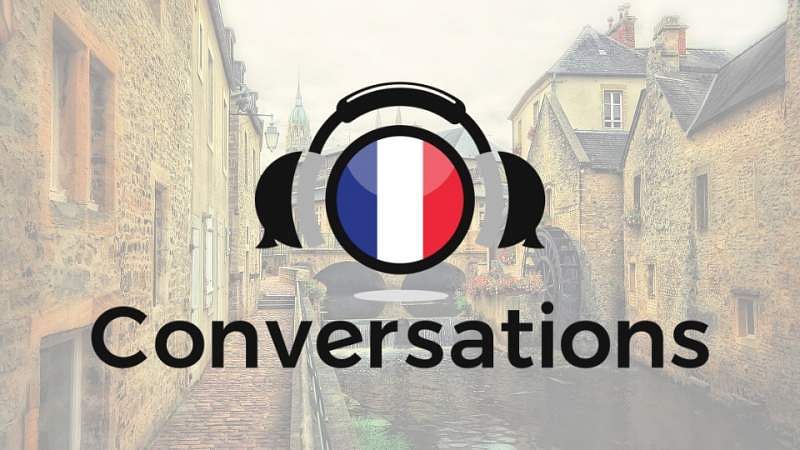
- Conversations – Do you struggle to understand fast, spoken French? Conversations helps you understand real French & transform your listening skills in less than 90 days.
Master French Grammar Through Story

- French Grammar Hero – Want to master French grammar without translating in your head or pouring over grammar books? Discover my method for learning the essentials of French grammar the natural way through story.
Now You’re Ready To Start Learning French!
If you follow these simple steps, you’ll find that your French ability improves quickly!
As anyone who has ever successfully learnt the language can tell you, the moment you realise you are having a conversation in French – when you are expressing yourself and can understand what people are saying to you – it’s an amazing feeling.
Don’t worry about making mistakes, just open your mouth and start speaking. Accept that you will get things wrong and that it doesn’t matter. The most important thing is just to start.
With your new language, you will be able to:
- Make new friends
- Have better travel experiences in French-speaking countries
- Earn people’s respect for learning their language
- Impress your monolingual English-speaking friends
- Gain a deeper understanding of French film, literature, art and cuisine
- Take advantage of new career opportunities
You will learn about modern France and gain a better understanding of French culture and the French way of life. And if you plan to use French for business you’ll also gain a greater understanding for and respect from your French-speaking business partners.
One final word of advice: when learning any language daily practice is key. Practising for a short amount of time every day is much better than practising for 3 or 4 hours once a week.
Make French a part of your daily life and you will be amazed at how quickly you progress.
I hope you’ve found this post useful!
If you have a friend learning French, please take a moment to share this post with them, or on social media – it would mean a lot to me! (You can click here to send a Tweet!)
I know this is a long post and it’s difficult to take everything in all at once. That’s why I’ve created a special PDF version of this article which you can download and refer to any time you need it! Click here to download the PDF version for free. And if you download the PDF, I’ll send you even more tips to help you as you continue learning French.



